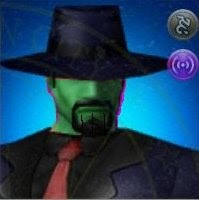As always, life and laziness
have got in the way of blogging. I have also decided to drift away from
the more overtly political blogging, quite frankly because there are
people who do a much better job than me, they research and everything In
a sort of farewell to the politics side of things, I thought I’d talk
about Channel 4’s irreverent political show 10 O’clock Live. For those
not in the know it is a show which mixes humour and satire with
political discussion fronted by Lauren Laverne, Charlie Brooker, Jimmy
Carr and David Mitchell. 10 O’clock Live initially started life in 2010
as the one off “Alternative Election Night” on Channel 4, a show
designed to give a more light hearted take on the live election
proceedings. At the time I surfed between this and the regular BBC
coverage and while the BBC was still the best the alternative was a
welcome break, particularly early on when not much was happening and the
Channel 4 presenters, after the polls closed naturally, could have a
bit more fun than their serious counterparts.
The Alternative
election night was obviously a success because later that year Channel 4
commissioned 10 O’clock Live, essentially the same show but covering
topical news instead of an election. Many were initially unimpressed,
and indeed I was rather annoyed that they had put the show up against
Question Time. As a devoted Question Time tweeter this meant that I
ended up watching on a repeat or +1. The show itself was a mixed bag.
It was obvious that most of the presenters were not used to live TV,
Jimmy Carr is a bit of a Marmite comedian at best and they didn’t have
much of an idea what to do with Lauren Laverne. I have to admit that
when that series ended I expected that would be the last we would see of
this show, however in 2012 it returned.
The show seemed to
have been streamlined quite a bit, with several items dropped, one which
I wish they had kept was David Mitchell’s interviews. While Mitchell
was definitely not an attack dog like Paxman or Humphries, I actually
liked his interview style, essentially, he knew he wasn’t going to get
the better of these people, and didn’t go out the way to humiliate
anyone, however his easy going style allowed him to often surprise a
guest with a comedic barb or even a well placed question. In all that
time Mitchell still appeared like a reasonable man asking reasonable
questions and I think this could have grown.
Again, after series 2
finished I thought “It’s gone now” but it is back for 2013 with some
improvements. Most of Jimmy Carr’s skits have gone, and he now just
does his regular review of the week stand-up routine. All the hosts
have only one segment, and in fact poor old Lauren Laverne doesn’t
generally get a segment at all, a shame as her guides to various events
and her piece on Serco were actually one of the better bits. What has
been added is much more round table discussion between the three hosts
and this actually works really well and was something that was
inexplicably kept to a minimum in the last two series. I will still say
that David Mitchell does not chair a debate particularly well (Perhaps
Laverne would do better) and the new skit with a fake American news
anchor is pretty dull. However overall the show continues to improve.
I’m
glad Channel 4 will give successful one off or event shows a go as a
regular programme. (See “The Last Leg” as another example) and they
also do seem to have the commitment to refine the format, drop what
isn’t working and improve on what is. A couple of more tweaks and 10
O’clock live will become must watch TV.
:squee:
16 years ago

